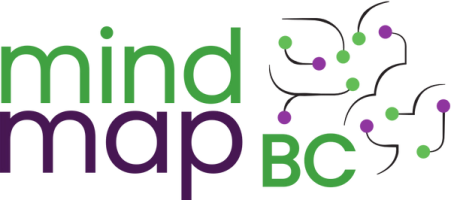Willow Tree Counselling
Summary
Individual counselling
Relationship counselling
Addictions counselling
 Wheelchair Accessible
Wheelchair AccessibleTrans Affirming
LGBQ+ Affirming
Remote services
I am consistently optimistic about the unique potential of everyone I meet with. This informs every aspect of my counselling approach. I am a Registered Clinical Social Worker offering counselling and psychotherapy to individuals and couples. Services are available in-person at my downtown Vancouver office, by phone or via secure video.
I founded Willow Tree Counselling after over a decade of work in public practice. At my downtown Vancouver counselling and psychotherapy office, I strive to cultivate a therapy space that is safe for all genders, races, cultures, bodies, neurotypes, sexual orientations, family constellations and relationships.
Please note that gender neutral washrooms are not available in the shared building space. Remote services are available.
Want to learn more about this service’s work with Two-Spirit, trans, LGBQ+ people?
We invite all service providers listed on MindMapBC to answer the following questions. These questions were developed in collaboration with community members, researchers, and mental health and other service providers. They're intended to help us understand what a service provider or organization is doing to affirm and support sexual and gender diverse service users.
See below for responses for this listing.
Want to learn more about our screening questions and filters?
Are the forms used in your practice inclusive of various sexual orientations and gender identities (e.g., opportunities to fill in pronouns, etc.)?
—Yes
My intake forms have a field for clients to indicate their pronouns and gender identity
Do you collect and use preferred names (rather than legal names) for all communications?
—Yes
Clients indicate their preferred name on their intake forms and are addressed as such in their sessions and in all communication with them. They also have the option (not required) to add their legal name in case they want to use my session receipts to submit to their extended health (if they have this option) for reimbursement.
Do you and your colleagues have experience providing services that support clients with navigating gender dysphoria*? *TransCareBC describes gender dysphoria as a term "intended to describe the distress some trans people experience with relation to their gender identity, particularly if they would like to transition but have not yet done so".
—Yes
Yes, I have worked with many clients over the years who have identified as having gender dysphoria.
Please tell us how equipped you feel to support a client in determining if/when their mental health symptoms are related to their gender-related experiences or other factors? Please describe your response choice below.
—Very confident
While being cautious not to assume that their mental health symptoms are related to dysphoria, I am comfortable exploring whatever a client brings up around dysphoria.
Do you/your colleagues understand the difference between gender dysphoria and mental health conditions/symptoms that are unrelated to gender dysphoria or distress?
—Yes
Yes. One cannot make assumptions or take a 'one size fits all' approach. I lead with what a client identifies as relevant to them.
Do you and your colleagues have experience working with people who identify as living with a disability or chronic illness? Please tell us more about your experience and any training you have received.
—Yes
Many of my clients have disabilities (self-disclosed) and have chronic pain or chronic illnesses. I myself am disabled (I'm multiply neurodivergent and I work with significant hearing loss, using equipment that allows me to continue counselling). I enjoy reading about disability rights and justice as part of my continuing education.
Are you and your colleagues comfortable asking relevant questions about gender identity and sexual orientation?
—Yes
Yes, as long as it's relevant.
Do you offer Indigenous 2S/LGBTQ+ specific resources, for example Indigenous Elders or Knowledge Keepers?
—Yes, to some extent
I need more resource knowledge in this area. In general I would always offer (known) resources to my Indigenous clients. During an initial consultation call also ask any self-identified Indigenous clients how they feel about me as a white counsellor and whether they would prefer a referral to an Indigenous therapist.
Do you and your colleagues ask clients about pronouns and use them appropriately?
—Yes
On intake and I use them in sessions and in my progress notes. I also use pronouns in my email signature as well.
Are you and your colleagues aware of what specific barriers may exist for Two-Spirit, queer, or trans Indigenous individuals accessing your services?
—Yes, to some extent
I have done some reading on this but I need to know more.
Are you and your colleagues aware of what specific barriers may exist for LGBQ individuals accessing your services?
—Yes
Extensive readings and discussions with my LGBTQ+ family members.
Are you and your colleagues aware of what specific barriers may exist for trans individuals accessing your services?
—Yes
Extensive discussions with trans family member, trans readings/workshop
Does your practice have gender-neutral washrooms?
—No
Unfortunately no. I rent a private office in an office tower and I don't have jurisdiction over the washrooms.
Are there clear anti-discrimination policies that include gender identity, gender expression, and sexual orientation in your organization or practice?
—Yes, to some extent
Clients have been informed in writing of the contact information for the BC College of Social Workers should they wish to make a complaint about the care they have received from me. Clients can also view my LGBTQIA2+ page for more information about my approach.
Are all individuals involved in service provision actively engaged in decolonizing their practices and/or organization? If yes, please type below what actions you and/or your organization are taking.
—Yes
Enrolled in San'yas Indigenous Cultural Safety Training (mental health stream)
I have been contributing monthly, since the spring of 2020 to the Healing in Colour counselling directory and to the Vancouver Black Therapy and Advocacy Fund.
Are all individuals involved in service provision actively engaged in anti-racist practices, policies, and systems in their care model?
—Yes
I'm a solo practitioner :)
Address
915 - 1125 Howe St.
Vancouver, BC
V6Z 2K8
Last updated: August 11, 2023
Request changes —

